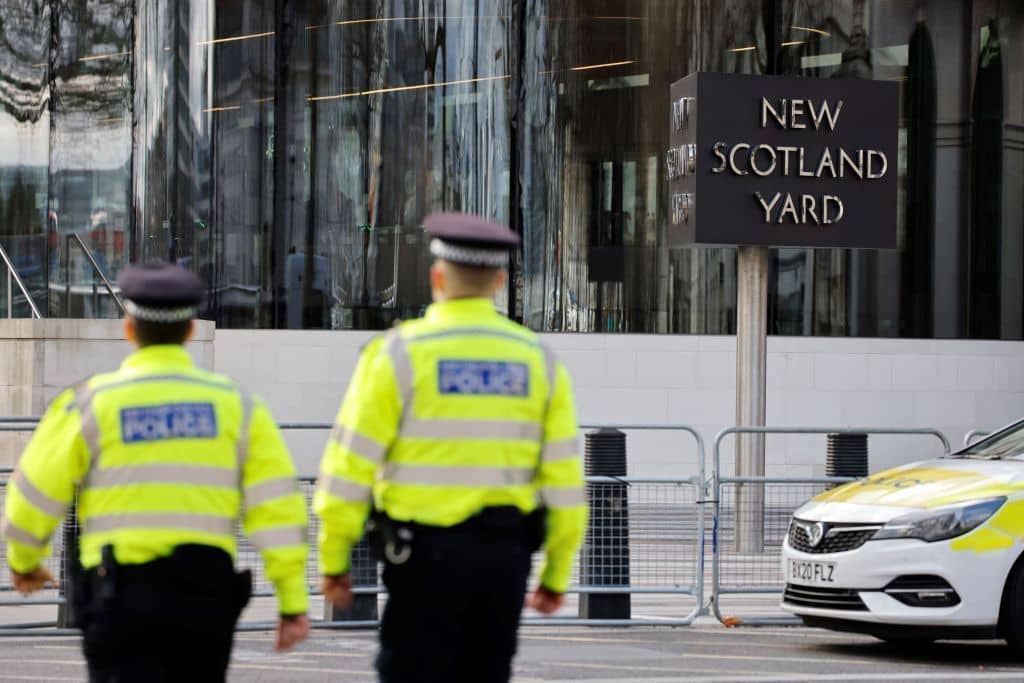‘We’re not the thought police’, says the new chief inspector of constabulary, Andy Cooke. That the police don’t want to concern themselves with what’s going on inside our heads, punishing those who entertain dissenting ideas, is welcome news. But the fact Cooke even felt he had to make this intervention, in his first interview in post no less, reminds us just how bad things have become in English policing in recent years.
Cooke is clearly keen to push back – or at least be seen to be pushing back – against the alarming rise of what can legitimately be called thought policing in our supposedly liberal country. More than 120,000 so-called non-crime hate incidents were recorded by police between 2014 and 2019. Infamously, these are non-criminal actions that have been recorded by police forces, and can float up on an advanced background check, even where there is zero evidence to corroborate that there was any hate involved.
In the topsy-turvy world of 21st-century Britain, demanding or enforcing state censorship is how you appear liberal and progressive.
Humberside businessman Harry Miller took the College of Policing to court over this practice, bringing the scandal of NCHIs to national attention. Miller had one recorded against him for tweeting about gender ideology. One offending tweet was a retweet of a limerick. This was enough for a member of Humberside’s finest to call Miller up, telling him the police had to ‘check [his] thinking’. The Court of Appeal ruled last year that the current NCHI guidance was unlawful, but the practice may live on in some watered-down form.
If this policing of thought crime and ‘non-crime’ wasn’t dystopian enough for you, police have also set about pro-actively warning people to watch their words. Last year, Merseyside Police had a PR disaster on their hands after officers put up a billboard outside an Asda blaring the warning ‘being offensive is an offence’. In a similar vein, in 2018, South Yorkshire Police urged people to report ‘offensive or insulting comments’ as part of their ‘Hate Hurts’ campaign.
It should go without saying that this is not the sort of thing the police should be getting up to in a country that considers itself liberal and democratic. What’s even more bizarre about all the time and energy apparently being plunged into telling off tweeters is that it has coincided with a marked decline in successful investigations for actual, serious crime.
‘Policing is busy enough dealing with the serious offences that are going on, busy enough trying to keep people safe’, notes Cooke in theTimes. Well, quite. According to Home Office figures, around six per cent of all crimes resulted in a charge last year. For burglaries this falls to five per cent and for sexual offences it was just under three per cent. And yet amid all the understandable talk of strained resources, a surprising amount of them are being found to clamp down on free speech.
Not all of this is the police’s fault, of course. While police should rightly be criticised for overzealously going after non-crime, urging people to report it and trawling outside supermarkets for would-be hate victims, they also have to enforce what are some of the most appalling speech laws in the free world. A Times investigation found in 2017 that nine people a day were being arrested under the Communications Act for posting offensive messages online.
Still, there has clearly been a desire among some leading officers to attempt to virtue-signal and burnish their image with certain communities by ostentatiously going after so-called hate speech. For in the topsy-turvy world of 21st-century Britain, demanding or enforcing state censorship is how you appear liberal and progressive.
Perhaps the police are starting to realise that the way to improve their relationship with the public is to tackle the crime that is actually being committed against them, rather than shaking more of them down over spicy Facebook posts. A novel idea, I know – but maybe it is finally catching on.







Comments